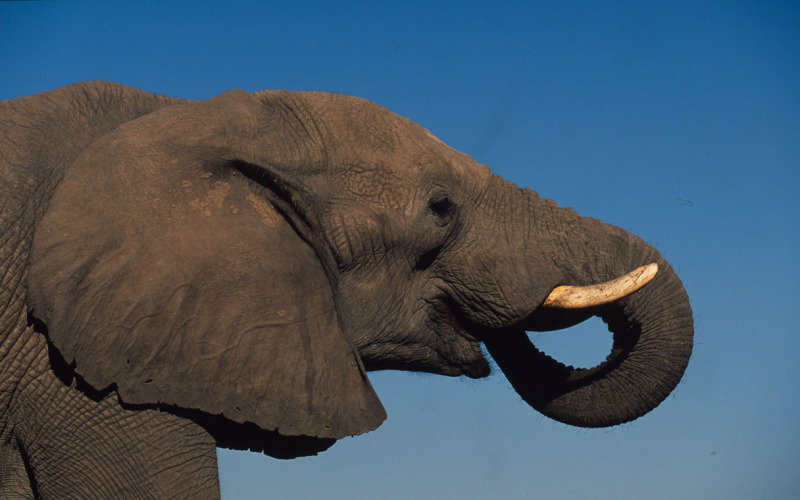Beijing, China, 30 December 2016 – WWF and TRAFFIC welcomed today’s historic announcement that China will close down its domestic ivory trade by the end of 2017, signalling an end to the world’s primary legal ivory market and a major boost to international efforts to tackle the elephant poaching crisis in Africa.
The General Office of the State Council of China announced that China will “cease part of ivory processing and sales by 31 March 2017 and cease all ivory processing and sales by 31 December 2017”.
Lo Sze Ping, CEO of WWF-China said: “WWF applauds China’s decision to ban its domestic ivory trade so swiftly, underlining the government’s determination and strong leadership to reduce demand for ivory and help save Africa’s elephants.”
“Closing the world’s largest legal ivory market will deter people in China and beyond from buying ivory and make it harder for ivory traffickers to sell their illegal stocks.”
At the Convention on International Trade in Endangered Species of Wild Fauna and Flora (CITES) held in South Africa in October, the delegates adopted a resolution calling for all countries with a legal domestic market for ivory that is contributing to poaching or illegal trade to take measures to close their domestic ivory markets.
“Now that three of the world’s largest domestic ivory markets – China, Hong Kong SAR and the US – are being phased out, we hope that other countries will follow suit,” said Lo Sze Ping. “China and the US have shown how quickly markets can be addressed and the sooner the better for Africa’s elephants.”
In August 2016, WWF and TRAFFIC released key recommendations that found a ban could be implemented within two years and that it would raise people’s awareness of elephant conservation and help law enforcement tackle the illegal trade.
“TRAFFIC stands by, ready to provide technical support for monitoring ivory markets and to help build law enforcement capacity to assist the effective implementation of the domestic ivory ban in China,” said Zhou Fei, Head of TRAFFIC’s China office.
While elephant poaching in Africa appears to have peaked in 2011, around 20,000 continue to be killed illegally each year across the continent, primarily to feed demand for ivory in Asia, particularly in China.
While closing all commercial domestic ivory markets will have a major impact, bans alone will not stop the illegal ivory trade if demand persists. WWF and TRAFFIC encourage the Chinese government to continue their efforts to reduce demand for ivory, raise public awareness and work with other governments, conservation organisations, the private sector and local communities to end the illegal ivory trade – and give Africa’s elephants a future free from poaching.
Last October’s CITES meeting also provided an opportunity to enhance international efforts to end the poaching and ivory trafficking by strengthening the National Ivory Action Plan (NIAP) process, which was launched at the previous Conference of the Parties (CoP) in Bangkok in 2013 and is beginning to yield results. Along with 18 other Asian and African countries, China has had to develop and implement an ivory action plan as part of the global response to the current crisis.
“Closing legal markets is an important step but the illegal trade will continue to flourish unless countries rigorously implement their national ivory action plans,” said Zhou Fei.
The publication of the timetable stems from a joint commitment that the presidents of China and the United States made during their meeting in Washington in September 2015 to impose near-total ivory bans in their countries. New federal regulations were enacted in the US on 6 July that almost completely prohibit the domestic ivory trade.
Meanwhile, the authorities in Hong Kong announced last week that they would phase out the city’s commercial domestic ivory trade by 2021, although a WWF feasibility study found that it could be done within two years.














